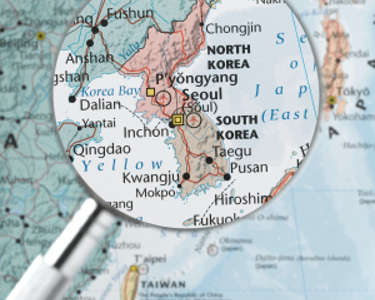South Korea May Ban Missionary Travel to Mideast
 South Korea may restrict missionaries’ travel to the Middle East, where government officials say their work makes them vulnerable to terrorist attacks.
South Korea may restrict missionaries’ travel to the Middle East, where government officials say their work makes them vulnerable to terrorist attacks.
Foreign Ministry officials said dozens of missionaries have been expelled in recent months from nations such as Iran, Jordan and Yemen, where proselytizing is either banned or restricted, the Associated Press (AP) reported.
The officials said the missionaries’ work threatens both their safety and that of other South Koreans. “Their work goes against local sentiment and makes them targets of al-Qaida or the Taliban,” a ministry official told the AP on condition of anonymity. “There are also strong possibilities that the safety of ordinary citizens could be threatened.”
The South Korean government is considering banning missionaries who have a record deportation for their ministry work from entering those countries again.
Under South Korean law, the government can restrict citizens’ travel if they are the focus of a criminal probe or there is concern that national interest or public safety is at stake, Agence France Presse (AFP) reported.
Citing an unnamed source, the Korea Times said about 80 South Korean Christians had been expelled from Middle Eastern countries in the last two months. In July, the newspaper said, 12 people faced deportation for their door-to-door missionary work in southeastern Iran. Six had already been expelled for evangelizing in that area.
In 2007, 23 missionaries from a South Korean church were kidnapped by the Taliban in Afghanistan. Two were killed while the others were released.
In June, al-Qaida was blamed for the kidnapping and murder of a South Korean woman in Yemen who worked with an international medical aid agency there, the AP said. The previous March, four South Korean tourists were killed in a bombing blamed on al-Qaida.
South Korea is one of the largest missions-sending nations in the world. The Korea World Missions Association estimates that there are roughly 19,000 Korean missionaries worldwide. The association has not commented on the possible ban but plans to meet this week with its 140 member organizations to discuss a response, the AP reported.














































